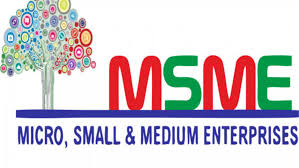A growing number of entrepreneurs in the micro, small and medium enterprise (MSME) sector are struggling to access formal credit, even as they power over 50% of Nigeria’s GDP and employ around 80% of the workforce
Business A.M – Braking news at tips
. Among the hurdles, banks continue to impose steep collateral demands and high interest rates—often topping 28%—while many small businesses lack the financial documentation or assets to meet these conditions
.
Financial experts highlight that just 6% of MSMEs successfully obtain formal financing, forcing the majority into informal borrowing from friends, family or unregulated lenders
. These informal systems, though easier to access, typically carry unfavourable terms and limit the growth of fledgling enterprises.
The situation is exacerbated by inadequate record‑keeping and weak credit histories. Business owners often lack bank statements, ledgers or audited accounts—crucial in lenders’ risk assessments—while even routine mishaps like unpaid bank charges can hurt creditworthiness
. Add to that, many rural and informal operators do not register as formal businesses, leaving them off the radar of banks and central financing schemes .
Moreover, the financing environment remains uninviting. Banks continue to view MSMEs as risky, preferring larger corporate clients, while stringent procedures and long approval processes alienate small operators . Multinational companies, too, have been accused of sidelining MSMEs in their supply chains, further shrinking opportunities for growth
Even when funding is available—such as the ₦200 billion Federal MSME fund—many businesses still cannot tap into it due to structural weaknesses and poor advisory support . As one analyst sharply put it: “Banks’ long‑standing reluctance to offer flexible loan options and stringent collateral requirements … have significantly stifled small businesses’ growth potential”
Solutions are emerging. The introduction of movable‑asset lending under the Collateral Registry Act and new digital credit‑scoring from fintechs and credit bureaus are helping some MSMEs gain traction
Business A.M – Braking news at tips
. Government intervention via institutions like the Development Bank of Nigeria—already disbursing in excess of ₦1 trillion to MSMEs
. Still, experts stress more needs to be done: affordable interest rates, simplified loan procedures, financial literacy training, prompt invoice settlements, and integrating MSMEs into corporate value chains are vital.
Without addressing these systemic barriers, millions of Nigerian businesses will remain starved of capital, undermining their ability to create jobs, boost productivity and lift communities out of poverty.



